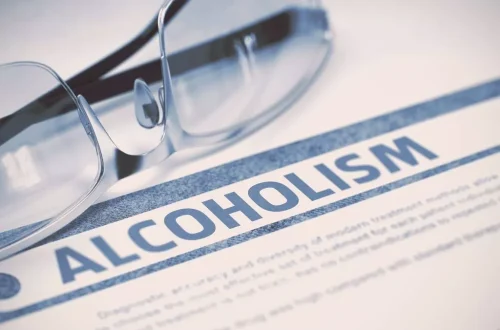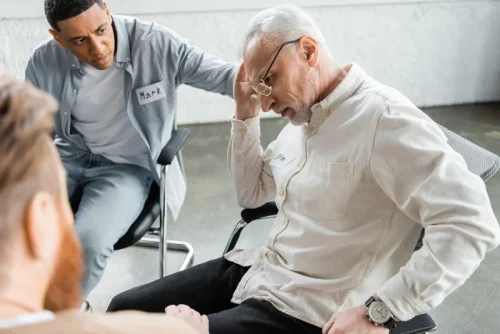The treatment for dependence, whether physical or psychological, often involves a combination of these approaches tailored to the individual’s needs. It’s important to remember that seeking professional help is crucial for developing an effective treatment plan and ensuring long-term recovery. It’s important to note that physical and psychological dependence often coexist, complicating the treatment and recovery process.
Types of Addiction
Although the first step towards getting sober is admitting you have a problem and asking for help, the next step is identifying your specific needs so that your treatment plan is best tailored to your situation. This is why, upon enrolling at an addiction treatment center, you will complete an assessment that will gain an understanding of your physical and psychological symptoms. People who suffer from addiction will typically experience both physical and psychological dependence.
Symptoms of Physical Dependence
In other words, it is not just dependence, but addiction that needs to be addressed. It is also noteworthy that addiction can occur without physical dependence. People may not suffer visible physical withdrawal symptoms when desisting from certain substances, but they typically have severe cravings and may even return to using. In addition to these physical symptoms, symptoms of physical dependence can include fear, anxiety, and discomfort during withdrawal, which may lead to lashing out at loved ones. Without supervised detox, there are significant risks, including death, depending on factors such as the duration and amount of substance use. Although the two are distinct, physical and psychological dependence aren’t entirely separate.
Managing Physical Dependence
Depending on the addiction, it was previously thought to be either one or the other. Here at Sana Lake Rehab in St. Louis, MO, we have a great detox program that will help you and your body recover physically and psychologically. It seems that people think about physical addiction and psychological addiction as somehow separate processes. Even if people really meant what they were saying, the brain is undoubtedly part of the body, and therefore, psychological addictions are also physical.
Impact on Behavior and Body
These therapies may be held on an individual or group basis but should be individualized to meet each patient’s unique needs. Although detox usually lasts less than a week, addiction treatment programs might last anywhere from 30 days to several months depending on the severity of a person’s symptoms. Recovery strategies should, therefore, focus not only on managing withdrawal symptoms but also on addressing the psychological aspects of addiction. This could involve cognitive-behavioral therapy to help individuals recognize and manage triggers, group therapy for peer support, and relapse-prevention strategies to maintain long-term sobriety. Physical dependence is a physical condition caused by chronic use of a tolerance-forming drug, leading to uncomfortable or painful physical symptoms upon withdrawal or reduced dosage.
Mastering court-mandated alcohol & drug classes: Your essential guide for navigating programs with success.
- Withdrawal syndromes can last from days to months, with protracted withdrawal syndrome potentially lasting for months, years, or indefinitely.
- Both types of dependence pose unique challenges, and understanding their differences is crucial in developing effective treatment strategies.
- Differentiating between physical and psychological dependence is particularly important when addressing substance abuse.
- In these cases, treatment involves gradually tapering off the drug over a set period to reduce withdrawal effects.
- Considering that half of the people with a substance use disorder suffer from a mental illness, it’s likely symptoms of psychological dependence will emerge over time.
- This conflation of addiction with dependence, which stigmatizes effective medication treatment for opioid use disorder, is even enshrined in law.
Because physical dependence can form to legal and necessary drugs, physical dependence in and of itself does not constitute addiction. Physical dependence can happen with the chronic use of many substances— including many prescription drugs, even if taken as instructed. Psychological dependence is characterized by the intense craving and desire for a substance or behavior, driven by the rewarding effects it produces.
Signs of psychological dependence may include cravings, an obsession with the substance or behavior, and an inability to control or stop using despite negative consequences. On the other hand, psychological dependence is characterized by emotional and behavioral changes physiological dependence on alcohol surrounding the use of a substance. Individuals with psychological dependence may experience intense cravings and engage in compulsive drug-seeking behaviors despite negative consequences. The substance becomes a coping mechanism or a way to escape emotional distress.
Recognizing the Need for Intervention
- Understanding the factors that influence the development of physical and psychological dependence is crucial to addressing substance abuse issues.
- In extreme cases, withdrawal from certain substances can even lead to death.
- Other professionals who diagnose addiction (e.g. social workers, physician assistants, nurse-practitioners, addiction counselors) also need better education about these distinctions.
- With the right resources and treatment approaches, individuals can break free from addiction and regain control of their lives.
- The guidance and understanding of others who have gone through similar experiences can be invaluable in the journey towards recovery.
- The result is that clinicians who see evidence of tolerance and withdrawal symptoms assume that this means addiction, and patients requiring additional pain medication are made to suffer.
The signs and symptoms of a physical and psychological dependency are difficult to separate at times. Depression and anxiety can cause an individual to have heart palpitations, feel pain, and make them faint. Physical symptoms can make a person lose sleep, feel depressed, and feel anxious. One might lead to another, which is why it’s important to treat both as they appear.
Getting treatment for addiction
Understanding the distinction between physical and psychological dependence is important for developing effective treatment approaches for addiction. Both aspects need to be addressed in order to support individuals on their path to recovery. Treatment for physical dependence may involve managing withdrawal symptoms and gradually reducing the reliance on the substance. Addressing psychological dependence often requires therapy and counseling to uncover underlying issues and develop healthier coping mechanisms. By recognizing and addressing both physical and psychological aspects, individuals can find freedom from addiction and regain control of their lives.
Explore cocaine side-effects and addiction treatment solutions to conquer the enemy within for a healthier tomorrow.
Psychological addiction occurs when you do not suffer physical withdrawal from the substances you use, but you do suffer mental effects. Marijuana and cocaine are two of the most commonly used drugs causing psychological dependence. In order for addiction treatment to be effective, patients must receive treatment for their physical and psychological symptoms. By attending a residential rehab program, you will be able to confront your addiction, learn how to manage your symptoms, and gain life-long support that will be there for you throughout your sobriety. When suffering from addiction, people deal with a wide variety of issues and challenges that they must overcome.
Comments are closed.




